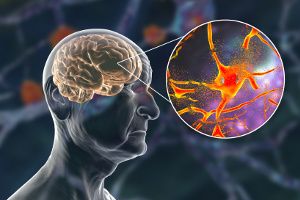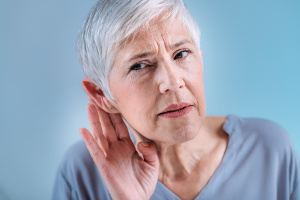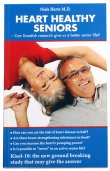 Alzheimer’s is an insidious disease and the leading cause of dementia. It’s also one of the major causes of death in old age. Diet plays a major role in preventing the disease. In fact, having high concentrations of the omega-3 fatty acid, DHA, in the blood can halve the risk of developing Alzheimer’s disease, according to a study that is published in Nutrients. DHA (docosahexaenoic acid) is found in oily fish and fish oil supplements. This essential fatty acid is also found in all our cell membranes (including nerve cells) and plays a key role in maintaining our general health and cognitive skills. Unfortunately, modern diets contain far too little omega-3, but science is not quite sure how much we need.
Alzheimer’s is an insidious disease and the leading cause of dementia. It’s also one of the major causes of death in old age. Diet plays a major role in preventing the disease. In fact, having high concentrations of the omega-3 fatty acid, DHA, in the blood can halve the risk of developing Alzheimer’s disease, according to a study that is published in Nutrients. DHA (docosahexaenoic acid) is found in oily fish and fish oil supplements. This essential fatty acid is also found in all our cell membranes (including nerve cells) and plays a key role in maintaining our general health and cognitive skills. Unfortunately, modern diets contain far too little omega-3, but science is not quite sure how much we need.
 As we grow older, our risk of hearing loss increases, and our diet plays a major role. Apparently, there is a link between hearing loss and being deficient in an omega-3 fatty acid that we get from oily fish and fish oil supplements. This was seen in a study that was presented in Boston at a meeting for the American Society for Nutrition – an American company for professional researchers and practitioners in nutrition. The scientists mention that increased intake of this particular omega-3 fatty acid from the diet or from supplements may help prevent hearing loss.
As we grow older, our risk of hearing loss increases, and our diet plays a major role. Apparently, there is a link between hearing loss and being deficient in an omega-3 fatty acid that we get from oily fish and fish oil supplements. This was seen in a study that was presented in Boston at a meeting for the American Society for Nutrition – an American company for professional researchers and practitioners in nutrition. The scientists mention that increased intake of this particular omega-3 fatty acid from the diet or from supplements may help prevent hearing loss.
 Oily fish and fish oil supplements contain EPA and DHA, two types of omega-3 fatty acids that are important for our brain, nervous system, and mental health throughout life. According to a new Irish study, young adults with higher blood levels of omega-3 are less likely to develop depression and anxiety. The researchers see a huge therapeutic potential in advising people to increase their omega-3 intake from oily fish or supplements. The problem is that modern diets contain far too little omega-3 and too much omega-6, which contributes to the increased rate of mental illness.
Oily fish and fish oil supplements contain EPA and DHA, two types of omega-3 fatty acids that are important for our brain, nervous system, and mental health throughout life. According to a new Irish study, young adults with higher blood levels of omega-3 are less likely to develop depression and anxiety. The researchers see a huge therapeutic potential in advising people to increase their omega-3 intake from oily fish or supplements. The problem is that modern diets contain far too little omega-3 and too much omega-6, which contributes to the increased rate of mental illness.
 Alzheimer’s is an insidious disease and the leading cause of dementia. It’s also one of the major causes of death in old age. Diet plays a major role in preventing the disease. In fact, having high concentrations of the omega-3 fatty acid, DHA, in the blood can halve the risk of developing Alzheimer’s disease, according to a study that is published in Nutrients. DHA (docosahexaenoic acid) is found in oily fish and fish oil supplements. This essential fatty acid is also found in all our cell membranes (including nerve cells) and plays a key role in maintaining our general health and cognitive skills. Unfortunately, modern diets contain far too little omega-3, but science is not quite sure how much we need.
Alzheimer’s is an insidious disease and the leading cause of dementia. It’s also one of the major causes of death in old age. Diet plays a major role in preventing the disease. In fact, having high concentrations of the omega-3 fatty acid, DHA, in the blood can halve the risk of developing Alzheimer’s disease, according to a study that is published in Nutrients. DHA (docosahexaenoic acid) is found in oily fish and fish oil supplements. This essential fatty acid is also found in all our cell membranes (including nerve cells) and plays a key role in maintaining our general health and cognitive skills. Unfortunately, modern diets contain far too little omega-3, but science is not quite sure how much we need.











 Oily fish and fish oil supplements contain EPA and DHA, two types of omega-3 fatty acids that are important for our brain, nervous system, and mental health throughout life. According to a new Irish study, young adults with higher blood levels of omega-3 are less likely to develop depression and anxiety. The researchers see a huge therapeutic potential in advising people to increase their omega-3 intake from oily fish or supplements. The problem is that modern diets contain far too little omega-3 and too much omega-6, which contributes to the increased rate of mental illness.
Oily fish and fish oil supplements contain EPA and DHA, two types of omega-3 fatty acids that are important for our brain, nervous system, and mental health throughout life. According to a new Irish study, young adults with higher blood levels of omega-3 are less likely to develop depression and anxiety. The researchers see a huge therapeutic potential in advising people to increase their omega-3 intake from oily fish or supplements. The problem is that modern diets contain far too little omega-3 and too much omega-6, which contributes to the increased rate of mental illness. "After about one week of taking the Q10 supplement I could feel a huge difference," says 23-year old Alan Piccini, who has been suffering from extreme fatigue and muscle aches ever since he was a child.
"After about one week of taking the Q10 supplement I could feel a huge difference," says 23-year old Alan Piccini, who has been suffering from extreme fatigue and muscle aches ever since he was a child. “Taking capsules with co-enzyme Q10 has freed me of the severe side effects of my cholesterol lowering medicine,” Mrs Franken explains.
“Taking capsules with co-enzyme Q10 has freed me of the severe side effects of my cholesterol lowering medicine,” Mrs Franken explains.